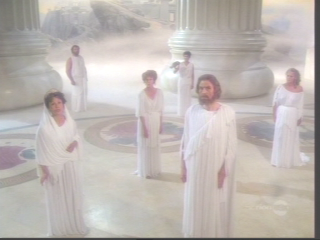Is "Dios" plural or singular?
Is "Dios" plural or singular?
7 Answers
Fun fact this phenomenon occurs in almost all Abrahamic texts as originally the ancient Israelites were polytheistic. You can see it in the Bible in genesis were god refers to himself as we and refers to man as made in our image. So in short while dio was originally the plural it became the singular due to religious reasons
I wonder if the word isn't simply a variation of the original Latin, 'deus', meaning 'a god', which has been rendered in numerous (similar) ways in the various Romance languages. In Spanish & Portuguese it ends with S. In French, Italian and Romanian it does't end in S or any other plural indicator. I don't see why the Spanish would concoct a kind of 'pluralised singular' when even the Italians were happy to keep it straightforwardly singular...
Speaking linguistically and not theologically, the Spanish word "Dios" or even "dios" is singular just as "país" and "autobús" are singular. To make all three plural except for "Dios" with the capital letter which suggests a name, they would be as follows:
dioses
países
autobuses.
For many religions, it would be sacrilege to suggest there could be two!
Presumably, not including Judaism & Christianity, otherwise, the injunction/commandment "Thou shalt have no other gods before me." would simply be nonsense. Even if rewritten to use the singular form ("god"), the presence of the word "other" implies a plurality.
We are plural !!

Dios is singular.
For many religions, it would be sacrilege to suggest there could be two!
Brian, welcome to the forum. Please try to answer questions by using the tools on the site, for example you can enter dios into the dictionary and discover the answer for yourself. If you get stuck, please post a question which many will respond to.
Best,
J
I mmeant "Los dioses griegos"
In a particular religion is singular but if you are talking about Greece, you could say "ls dioses griegos" which is plural bye














